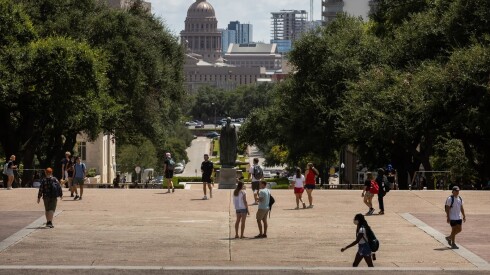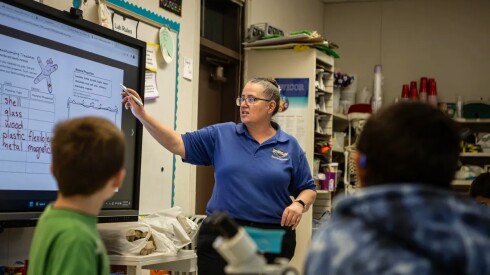Latest News
Work requirements through welfare have helped recipients find meaningful jobs. America has a vast workforce network at the ready to provide job placement services.
Local governments must review their risks and detection strategies and be better prepared for attacks. A state bill was prompted by a wave of cyber attacks against local agencies.
More than 5 million teenagers take care of older adults as part of their day, including nearly a third of high school students in at least one state. Their numbers may grow if Medicaid gets cuts.
A survey shows that more than half of manufactured homeowners on rented land have no lease.
Because reporting practices and requirements vary so much, extreme weather’s true damage cost is often a mystery. There are several ways to get better numbers.
Texas offered the benefit for 24 years. The move came in response to a federal lawsuit, but state leaders hailed it as a win.
Florida reopened schools earlier than some states but faces the same challenges of large shares of students missing a lot of school.
History suggests Republicans have a real shot, despite the state's blue leanings. In San Antonio, the mayoral election is also turning on partisan concerns.
A community foundation chose to take a chance on downtown rebirth.
Not everyone who wants to live in a dense walkable neighborhood is able to do so. A morass of regulations stands in the way.
While efforts to address climate change have faced a setback in Congress, state agencies, communities and citizens continue to plan and initiate projects that implement the state’s Climate Action Framework.
Currently, as part of their training, students work for free for a year as teachers or classroom aides. That creates an economic hardship that discourages some potential recruits.
The 1960s-era program put at-risk youth to work, but the Labor Department concluded its costs were too high and that privately-run facilities were rife with sexual abuse and other violence.
The one-time grant funding let cities and counties demonstrate new ideas and expand existing efforts to curb gun violence. When the ARPA sunsets, some efforts may scale down, but local governments have been planning to maintain the bulk of the work.
Older, sick prisoners cost far more to incarcerate. Since they pose little or no risk to public safety, states should ease the path to medical parole.
Citizens Union, a good government group dating back to the 19th century, called for Andrew Cuomo to resign as governor four years ago. It’s just endorsed him for NYC mayor.
The administration will end protections for roughly half the 23-million-acre reserve, reopening the area for possible oil and gas drilling.
Chicago-area transit agencies face a $771 million budget gap. Absent state action, they’re warning about a 40 percent reduction in service and 3,000 layoffs.
Hundreds of Alabama church leaders are being certified as substance use support specialists, gaining insight into the nature of these disorders and connections with professionals who treat them.
A new cost-cutting law will move the system toward managed care, likely over a period of about four years.
Minnesota is one of a dozen states establishing programs that use recent college graduates to provide support to students in schools.
The largest increases are on taxes of tobacco, vaping and sports betting, but there are also various changes to corporate rates and collections.
The plan is to provide more public transportation to move people out of private vehicles to reduce carbon emissions. Critics call the approach heavily restrictive.
In recent years, conservatives have championed family-friendly workplace policies as “pro-life” measures.
Funding for a half-dozen tech hubs has been canceled in a setback for promising industrial policies. Local and regional actors must continue the work these valuable projects have begun.
On April 15, the Trump administration announced the transfer of this swath of land from the Bureau of Land Management to the military. That has effectively made the 180-mile border New Mexico shares with Mexico into an extended military base tied to Fort Huachuca in Arizona.
Hoping to spur more progress toward his 35,000 starter home goal, Gov. Spencer Cox unveiled a dashboard that highlights where affordable homes are — and aren’t — being built.
The legislative session was a mixed bag for Gov. Kevin Stitt, who got everything he wanted — including an income tax cut and a ban on cellphones in schools — until the very last day.
The mayor declared a city emergency on homelessness, granting herself certain powers to address the crisis. Now, some members of the City Council want to reassert their authority and end the emergency declaration.
The Oregon state legislature is hoping to raise billions for transportation projects from new sources as gas tax revenue dwindles. Democrats are pushing for a focus on maintenance.
Sponsored
-
Sponsored
Most Read















































